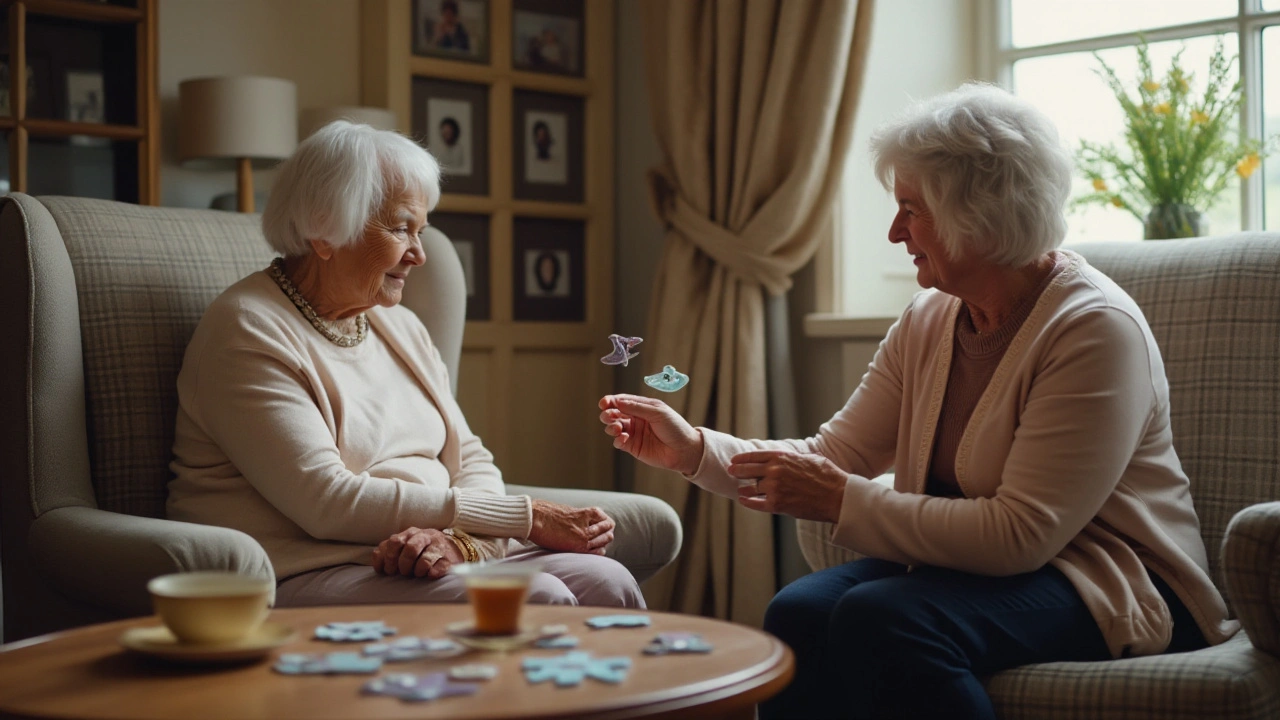Dementia Support: Practical Help for Caregivers and Families
Caring for someone with dementia feels overwhelming at times. You need clear, practical steps you can use today. This page collects tips on medications, spotting medical issues, home safety, daily routines, and caregiver support. Read short guides on treatments like galantamine (Reminyl), how low sodium can worsen confusion, and safe ways to buy essential medicines. Use what fits your situation and ask your doctor about changes.
Medications and Medical Red Flags
Medications can help but also cause problems. For example, galantamine helps memory in mild to moderate Alzheimer’s, but it can cause nausea, slow heart rate, and fainting. If a new drug makes confusion, drowsiness, or balance worse, call your clinician and ask for a medication review. Low sodium (hyponatremia) can look like worsening dementia — symptoms include nausea, headache, confusion, muscle weakness, and seizures in severe cases. If you suspect hyponatremia, get a blood test quickly and review pills that raise the risk, such as some antidepressants and diuretics.
Home Safety and Daily Routines
Small changes reduce stress and accidents. Remove loose rugs, add night lights, lock up dangerous items, and place a simple daily checklist in a visible spot. Use labels on drawers and photos on the door to help orientation. Keep a fixed routine for meals and meds — the brain likes predictability. Encourage light exercise like daily walks to help sleep and mood. If agitation spikes at night, track triggers: food, pain, thirst, or medication timing.
Caregivers need help too. Keep a medication list with doses, pharmacy contact, and allergies. Use a pill organizer and set reminders on your phone. Ask your doctor about local memory clinics, occupational therapy for home safety, and carer support groups. Search reliable sites for specific articles like our galantamine guide or tips on hyponatremia in older adults. If you need prescriptions, verify the pharmacy requires a valid prescription and has clear contact info before ordering online.
Have an emergency plan: list doctors, next of kin, and a brief medical history in one easy document. Make a durable medical alert card that includes current meds and allergies. Schedule regular short breaks — even an hour once a week helps prevent burnout. Consider respite services or a trusted neighbor who can step in for appointments. Join a local or online caregiver group to swap practical tips and ask specific questions.
Start small: pick one safety fix and one daily habit to test for two weeks. Track sleep, appetite, and mood on a chart. If cognition changes suddenly, seek review — infections, medication changes, or electrolyte shifts like hyponatremia are common causes. Bring the chart and medication list to appointments to speed diagnosis. Reliable help includes memory clinics, geriatricians, pharmacists who review interactions, and local Alzheimer’s associations. If you are shopping for medicine online, check reviews, require a prescription, and use a payment method that offers buyer protection. You don’t have to handle this alone; practical tools and local professionals can make life easier today.
8
How Occupational Therapy Transforms Alzheimer's Dementia Care
Occupational therapy plays a crucial role in the care of individuals with Alzheimer's dementia. By focusing on maintaining independence and improving the quality of life, these therapies can make daily activities more manageable. This article delves into various techniques, benefits, and real-life applications of occupational therapy in dementia care.
Latest Posts
Popular Posts
-
 Enteral Feeding Tube Medication Safety: Compatibility and Flushing Protocols Explained
Enteral Feeding Tube Medication Safety: Compatibility and Flushing Protocols Explained
-
 Accidental Pediatric Medication Overdose: How to Prevent It and What to Do If It Happens
Accidental Pediatric Medication Overdose: How to Prevent It and What to Do If It Happens
-
 OTC Heartburn Medications: Antacids, H2 Blockers & PPIs Explained
OTC Heartburn Medications: Antacids, H2 Blockers & PPIs Explained
-
 Stinging Insect Allergy: What Venom Immunotherapy Really Does for You
Stinging Insect Allergy: What Venom Immunotherapy Really Does for You
-
 Extended Use Dates: How the FDA Extends Drug Expiration Dates During Shortages
Extended Use Dates: How the FDA Extends Drug Expiration Dates During Shortages



